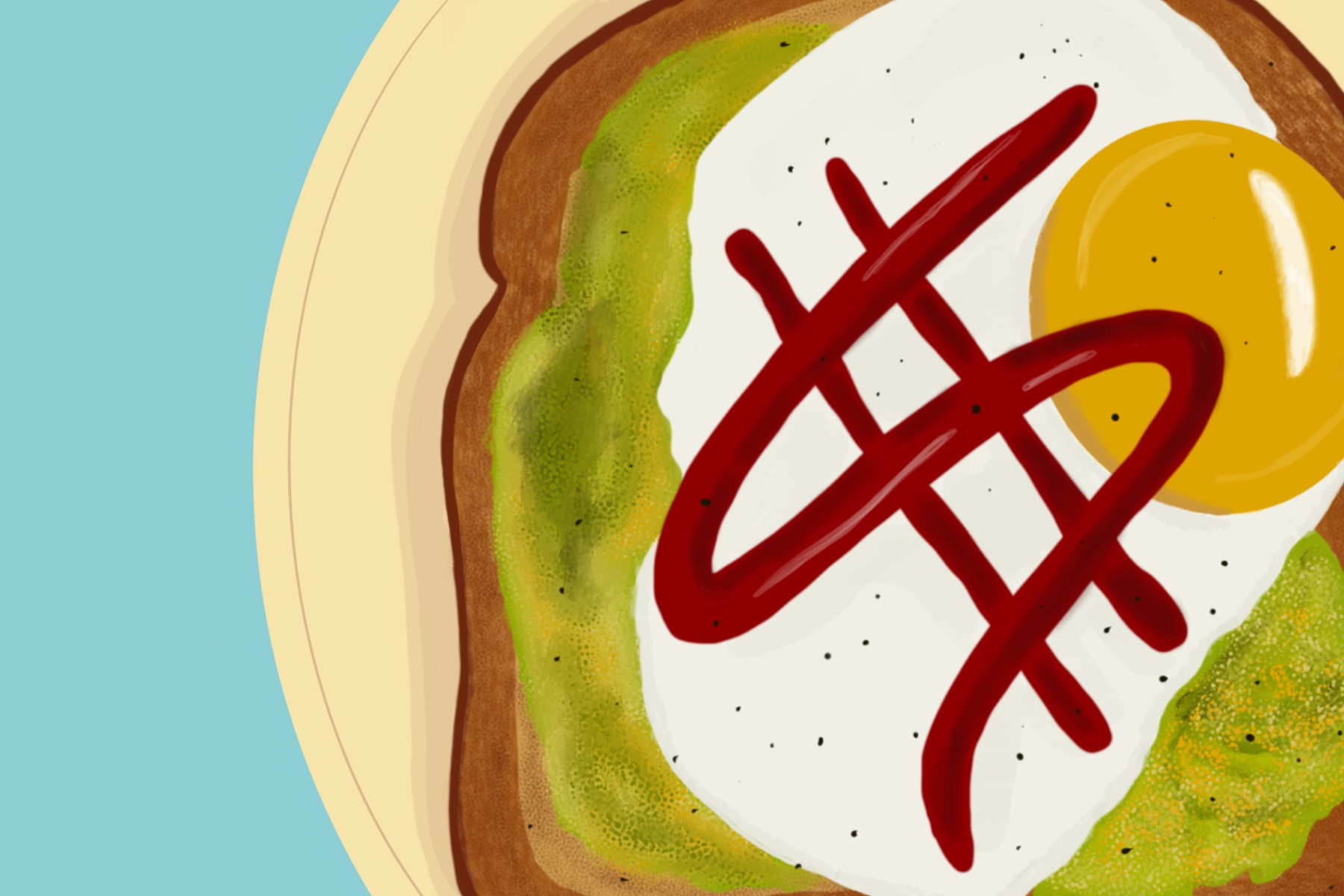You might have seen headlines demonizing millennial consumer trends. These headlines place blame on the generation’s spending habits by highlighting certain industries that are hurt by their consumption patterns. You also might have heard the famous “avocado toast is making millennials poor” line. While this might have a small ounce of truth, it is not a full reason why millennials are poor. But it also draws a bigger comment on how we compare the purchase of luxury goods between the poor and the rich.
The avocado toast myth comes from a statement that an Australian almost-billionaire, Tim Gurner, said in an interview with “60 Minutes“: “When I was trying to buy my first home, I wasn’t buying smashed avocado for 19 dollars and four coffees at 4 dollars each,” he said. However, bizarrely enough, he’s not the only one who’s made this comparison.
Fellow Australian Bernard Salt also said: “I have seen young people order smashed avocado with crumbled feta on five-grain toasted bread at $22 a pop and more. I can afford to eat this for lunch because I am middle-aged and have raised my family. But how can young people afford to eat like this? Shouldn’t they be economising by eating at home? How often are they eating out? Twenty-two dollars several times a week could go towards a deposit on a house.”
These guys have a point. Kinda. Yes, spending your disposable income on luxuries only reduces how much of your money you actually save. In the long run, this shortage of savings can put a damper on home-owning plans. However, what they’re describing is an extreme. Very few millennials are eating avocado toast or any other “luxury” foods for every meal on a daily basis. And those who are either have the means to somehow do so or don’t have any big plans in the future.
Anyone over the age of 50 might be puzzled by the notion that some young people don’t have plans to own a home either now or in the future, but this thought is common among today’s younger demographic. The reason is because millennials graduated at the dawn of a recession and entered a poor job market with an unmanageable amount of student loan debt. Unemployment for 18 to 35-year-olds hit 13% at the height of the recession in 2010 and today the average student debt is around $33,000 for each borrower ages 25 to 34. With crippling debt like this, many millennials can’t imagine being able to pay off their student loan debt in their lifetime, let alone accumulate more debt by taking out a mortgage.
The “avocado toast is making millennials poor” approach also brings up the issue of poor shaming. Poor shaming involves shaming others for what can be considered bad buying decisions. These spending habits are merely opinionated judgements on what others choose to spend their money on. However, generally the trend we see is that bad spending is class dependent. No one shames upper class people for taking several expensive vacations a year the same way low income people are judged for taking one vacation or having that venti Starbucks latte. No one ever tells the rich that skipping a small luxury here and there will save them enough money to own a new home. The fact that we even call avocado toast a luxury is a problem within itself. This meal only seems to be a luxury when poor people are consuming it.
Poor shaming perpetuates the narrative that low-income people are not entitled to small luxuries the same way rich people are. It’s almost as if because they are poor, they are not allowed the simple joys that make them happy. But people aren’t poor because they choose to indulge in a $5 “luxury” coffee every week. They are poor because of systemic economic disenfranchisement. They’re poor because they lack the resources to lift themselves out of this situation.
Millennials, however, seem to get blamed for a lot of the problems in the financial market. But are they really at fault? The newer generations are facing tough times because they’re trying to figure out how to pay back crippling student loans while being underpaid in an oversaturated job market. Millennials and poor people both experience backlash for indulging in small pleasures that their upper class counterparts never get the same heat for. Telling individuals to cancel unnecessary subscriptions and cook at home may be great advice. In reality, though, you simply cannot budget yourself out of poverty. A lack of frugality is not the root of the problem this demographic faces.
You would have to eat a $19 avocado toast for breakfast, lunch and dinner for an entire lifetime to equate to the price of a home in today’s housing market. And that is the problem.

















